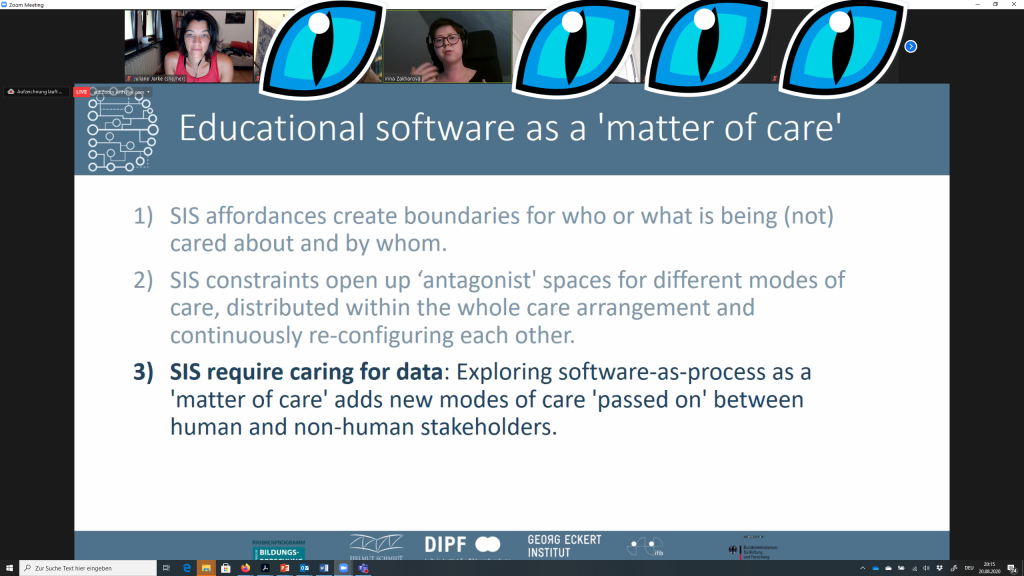
From August 18 to 21, the joint conference of the European Association for the Study of Science and Technology and the international Society for Social Studies of Science (4S) took place. Due to the Corona Pandemic, the conference was moved from the Czech capital Prague to “virPrague” and was held digitally. Whether the “vir” stands for “virus” or “virtual” was left open by the organizers. Despite the restrictions due to the pandemic, the organizers quickly created a digital infrastructure combining the classical lectures with the possibilities of digital communication and giving the participants a feeling of community.
The theme of the conference – “Locating and Timing Matters: Significance and agency of STS in emerigng worlds” – focused on the situated nature of the actions of different human and more-than-human actors in the datafied world. In numerous panel discussions, the impact of the corona pandemic on social practices and the role of data, algorithms and information systems in this process were also critically discussed.
As part of TP2 at ifib, Irina Zakharova and Juliane Jarke presented results from the ongoing DATAFIED project in the panel “Crafting critical methodologies in computing: Theories, Practices and Future Directions”. Their presentation was entitled “Software-as-a-Process: Reflection of Discourse-, Map-, and Process-based Research Artifacts” and reflected methodological considerations for the study of information systems.
The authors referred to feminist epistemologies (e.g. Puig de la Bellacasa 2011, 2017, Mol 2002) as a basis for understanding the “fluid”, ever-changing processes in information systems. The aim was to explore how the concepts of care-work and the application of different research artifacts (interview transcripts, maps and process models) help to explore the collaboration of school information systems and the many actors involved in the digitized school as an ongoing, continuous, emotional relationship. In this context, after Puig de la Bellacasa (2017), care work was understood as an affective state, work and ethical-political obligation. Thus, the authors used empirical examples to show how school information systems enable or restrict certain practices of care work. When practices of care work are narrowed down in one place, alternative spaces open up in which both human and more-than-human actors participate together in care work. Moreover, the care of multi-ethnic actors, such as digital data, is one of the practices required by school information systems to successfully implement the educational mission of the digital school.
As an overall result of the panel, the organizers and discussants have agreed to a follow-up meeting in September to further reflect together on critical methodologies and their role in information systems research.
